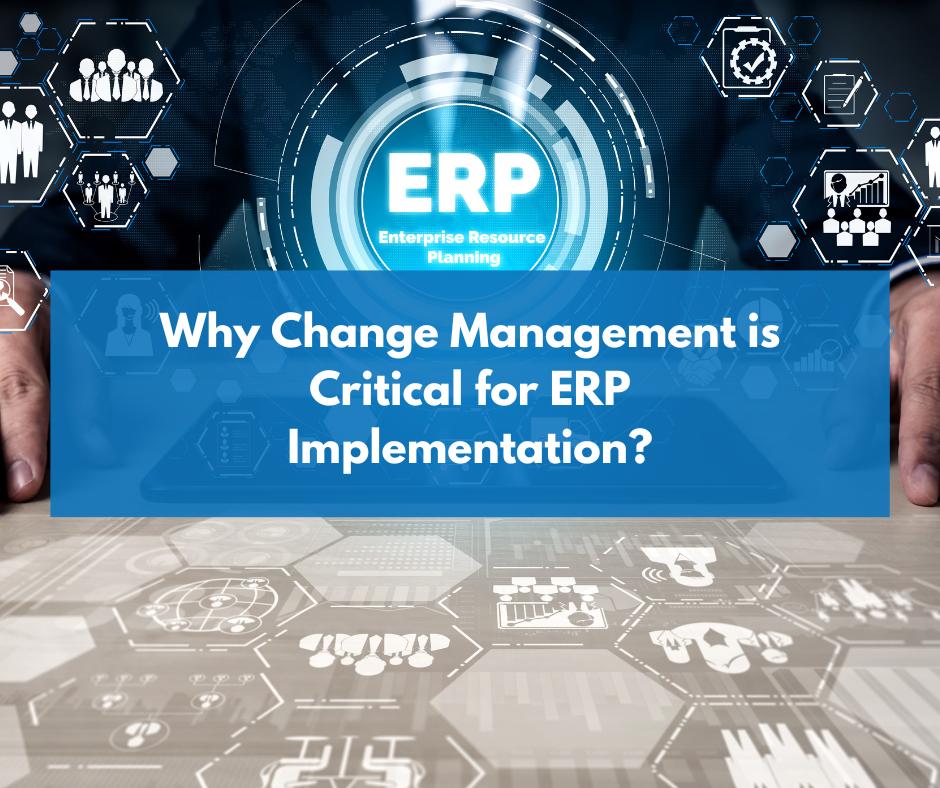Why Change Management is Critical for ERP Implementation?

Enterprise Resource Planning (ERP) systems are designed to streamline and integrate business processes, making them more efficient and effective. However, implementing an ERP system is a complex undertaking that requires careful planning and execution. That’s where change management comes in – it’s critical for successful ERP implementation. In this blog post, we’ll discuss why change management is so important for ERP implementation.
ERP implementation involves significant changes to existing business processes.
These changes can be disruptive and unsettling for employees, and can lead to resistance and pushback. Change management helps to address these issues by communicating the reasons for the changes, involving employees in the process, and providing training and support.
Change management ensures that employees are ready and capable of effectively utilizing the new system.
This includes providing training on the new system, as well as setting up support structures to help employees with any issues that arise. Without effective change management, employees may struggle to adapt to the new system, leading to frustration and reduced productivity.
Change management helps to manage expectations around the implementation process.
ERP implementation can be a lengthy and complex process, and it’s important to ensure that employees understand the timeline and the potential impact on their work. Effective change management can help to manage expectations and reduce the likelihood of misunderstandings or frustrations.
Ensuring alignment with business goals and objectives, change management helps implement the new system.
This involves identifying the key benefits of the system and communicating them to employees, as well as monitoring the implementation process to ensure that it remains on track. Without effective change management, it’s possible for the implementation to become derailed or for the system to be misaligned with business needs.
Ensuring effective adoption and use of the new system is facilitated by change management.
This involves ongoing communication and engagement with employees, as well as monitoring usage and providing support and training where necessary. Without effective change management, it’s possible for the system to be underutilised or for employees to revert to old processes.
Change management helps to ensure that the benefits of the new system are realised.
This includes monitoring usage and effectiveness, as well as making adjustments where necessary. Effective change management can help to ensure that the implementation process is successful and delivers the expected benefits.
In conclusion, change management is critical for successful ERP implementation. It helps to address resistance, prepare employees, manage expectations, ensure alignment with business goals, encourage adoption and usage, and realise benefits. Without effective change management, ERP implementation is likely to be difficult and may not deliver the desired results. By prioritising change management, organisations can set themselves up for success and reap the benefits of a streamlined and integrated ERP system.





